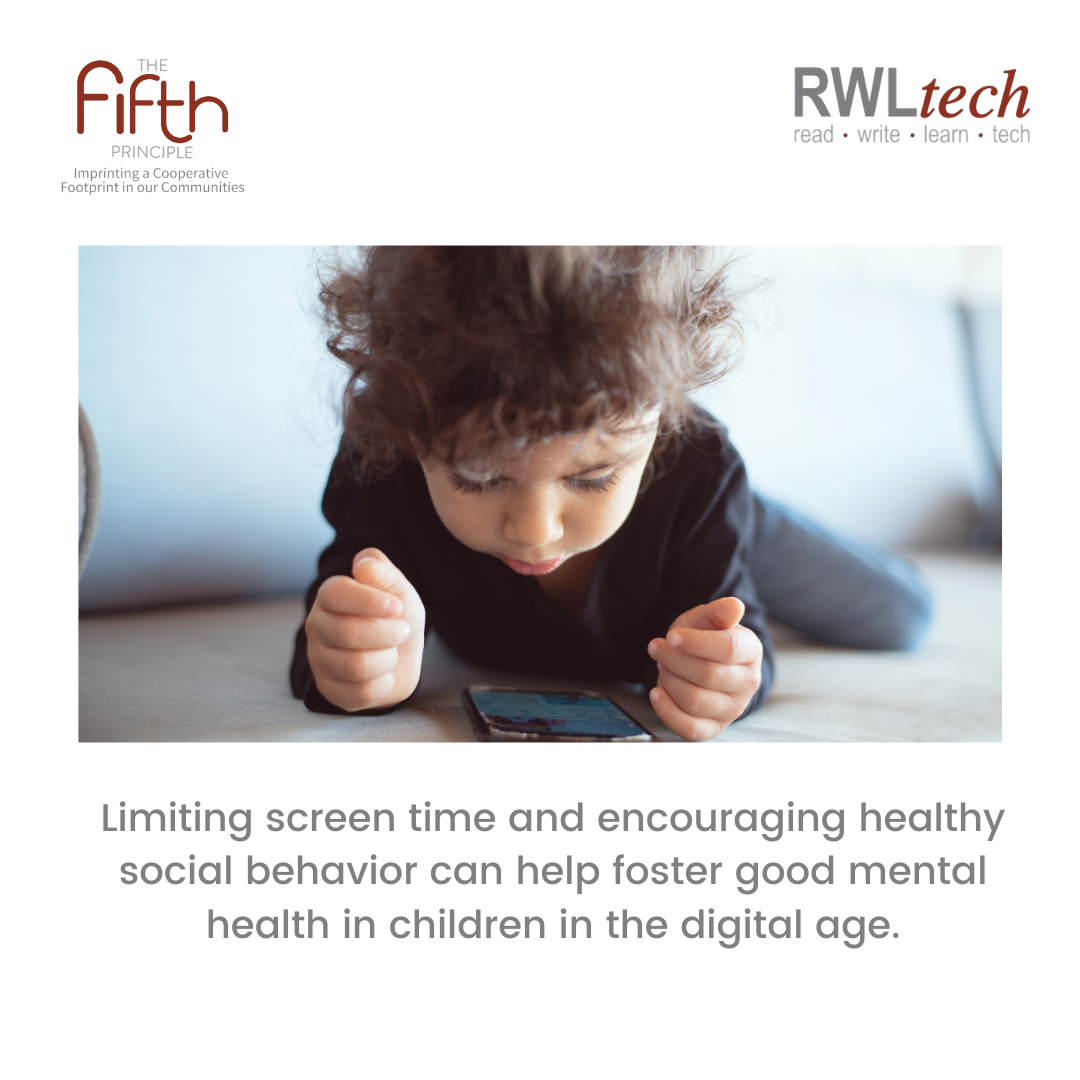In the present era of technology, the impact of screen time on children's mental health has become a significant worry. Although there are differing opinions on the exact effects of technology on mental health, it is evident that face-to-face interactions and socialization are vital for a child's healthy growth. Children who do not have enough opportunities for such interactions may have a higher risk of developing mental health problems, such as depression. Parents can promote good mental health in their children by encouraging healthy social behavior and restricting their screen time.
--------
Sign up here to learn more and be added to our waitlist for the next:
✍️Learn about historical events that shape our future. Flashback to a Fabulous Future.
(https://www.voiceamerica.com/episode/141282/what-is-history)
✍️ Ambition Quotient Read our book that shares simple to employ strategies to motivate and inspire those around you.
(https://www.ambitionquotient.com/)
✍️ Ambition Quotient Workshop Join our hands-on workshop to learn how you can motivate and inspire your team to produce at much higher levels and improve the morale at your organization.
(https://www.smartlearningforbusinesssuccess.com/)
✍️ Quiet Leadership course. Join our four-week program where you will be introduced to simple concepts that create a environment where your team feels valued and respected. There is no charge for this course.
(https://keap.page/ysn122/contact-us1.html)
✍️ Servant Leadership course. True leaders are those that serve those they lead. Servant Leadership creates a positive culture at your organization. There is a $49 charge for this course.
(https://keap.page/ysn122/servant-leadership.html)
✍️ Lessons from the Mouse. Learn customer service from the master teacher who created the world’s happiest place on earth! There is a $199 charge for this course.
(https://mwkp9t04.pages.infusionsoft.net/)
✍️ Mental Resilience: In a world where we can easily get discouraged and depressed by all the disappointing news in the world, learn how to keep your spirits high and your resolve firm. There is a $99 charge for this program.
(https://keap.page/ysn122/mental-training-contact-us2.html)
#MentalHealthAwareness #NatureVsNurture #EnvironmentalFactors #BiologicalBasis #MentalHealthTreatment #TherapyWorks #StressManagement #BreakTheStigma #MentalHealthSupport #ImprovingQualityOfLife
In today's digital age, the impact of screen time on children's mental health has become a growing concern for parents, caregivers, and mental health professionals alike. With the increasing availability of technology and digital devices, children are spending more time on screens than ever before. While there may be debate over the exact impact of technology on mental health, it is clear that excessive screen time can have negative consequences on children's social and emotional development. Research suggests that children who spend too much time on screens are more likely to experience a range of mental health problems, including depression, anxiety, and attention disorders.
One of the key factors that contribute to the negative impact of screen time on mental health is the lack of face-to-face interactions and socialization that children experience when they spend too much time on screens. Social interaction is essential for children's healthy development, as it helps them learn important social skills such as communication, empathy, and problem-solving. When children spend too much time on screens, they miss out on opportunities for social interaction and may become more isolated and withdrawn. This can lead to a range of mental health problems, including depression, social anxiety, and difficulty forming meaningful relationships.
To promote good mental health in children, it is important for parents and caregivers to encourage healthy social behavior and limit screen time. This can involve a range of strategies, such as scheduling regular playdates, encouraging outdoor activities, and setting reasonable limits on screen time. By providing children with opportunities for social interaction and limiting their exposure to screens, parents can help to support their healthy emotional and social development, and reduce their risk of developing mental health problems.


